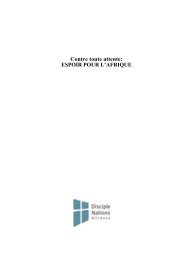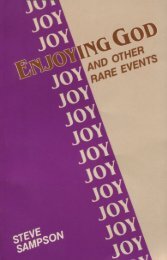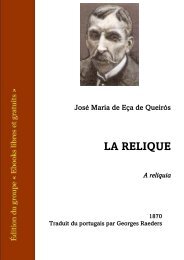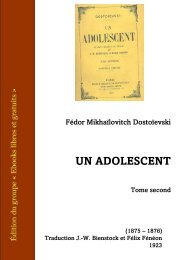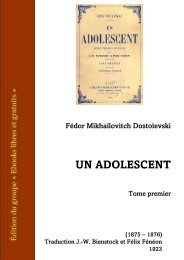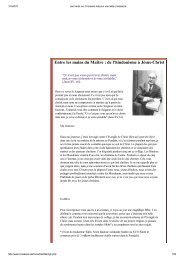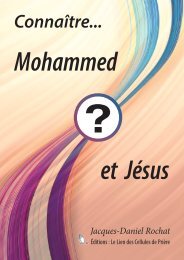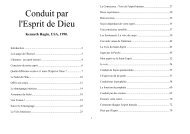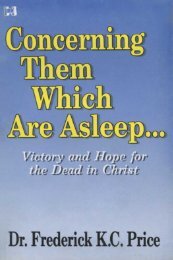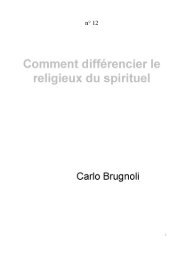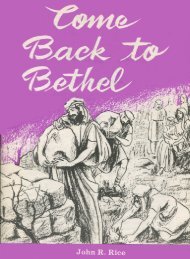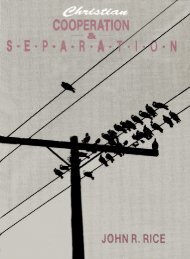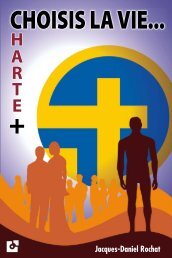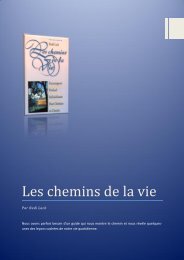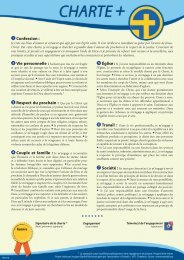341332
Create successful ePaper yourself
Turn your PDF publications into a flip-book with our unique Google optimized e-Paper software.
28 FATHERS, PASTORS AND KINGS<br />
jurisdiction was held immediately from God. That thesis severely limited papal<br />
jurisdiction over bishops and in dioceses, denying the pope the right to interfere<br />
not only in the residence of bishops but also in their exercise of jurisdiction over<br />
their clergy and laity. It drastically curtailed, therefore, papal power through the<br />
church. Yet the final decree made no reference to the origin of episcopal powers<br />
of jurisdiction; this was the compromise which the delegates found themselves<br />
forced to concede if the Council was not to flounder and break up in disarray.<br />
This meant, however, that it remained unclear whether the jurisdiction of bishops<br />
was directly derived from God or the pope. Conceivably, both interpretations<br />
of the issue could be supported and further developed in the Council’s<br />
wake, because no official doctrine existed.<br />
Once more, the quarrel reared its head when the Tridentine delegates<br />
turned to formulating the decrees on the sacrament of order between October<br />
1562 and July 1563. After a replay of the divisions over episcopal residence, the<br />
Council finally decreed that the priestly orders ‘truly and properly’ formed one<br />
of the seven sacraments, imprinting a unique and ineffaceable character on its<br />
recipients which enabled them to consecrate the bread and wine and forgive<br />
sins. Priests were distinct from and superior to the laity, therefore, because of<br />
the character and powers of their sacerdotal vocation, and the Council produced<br />
a plethora of regulations regarding clerical education, ordination and<br />
manner of life which were designed to ensure that Catholic clergy would conform<br />
to their defined role. 41 Bishops too belonged to ‘this hierarchical order’<br />
but were distinct from and superior to priests as a result of their charismatic<br />
authority to govern as successors of the Apostles and as a result of their charismatic<br />
ability to confer the sacraments of ordination and confirmation. 42 Here,<br />
the Council plumped for the dominant scholastic distinction between episcopal<br />
order (bishops’ power to confer order and to confirm) and jurisdiction (their<br />
power to govern). As the theology of priesthood had evolved during the<br />
medieval period, leading theologians, including such luminaries as Peter Lombard<br />
and Thomas Aquinas, had argued just this question. 43 Aquinas concluded it<br />
to his satisfaction by positing distinctions of order and of jurisdiction between<br />
priest and bishop, while concurrently maintaining that both formed part of the<br />
same sacrament. The episcopate, he claimed, was not merely an extension of<br />
the priesthood but a discrete ecclesiastical state blessed with the powers of perfecting<br />
and jurisdiction. 44 Although Trent adopted this distinction it deliberately<br />
avoided discussing its subtle theology since to do so would risk raising once<br />
more the question of the source of episcopal jurisdiction, a trap that the delegates<br />
were desperate to evade. In doing so, it failed, again, to respond to the logical<br />
questions: did episcopal jurisdiction come directly from God or indirectly<br />
via the pope, and secondly, precisely what degree of independent jurisdiction<br />
could a bishop expect to possess within his diocese?




